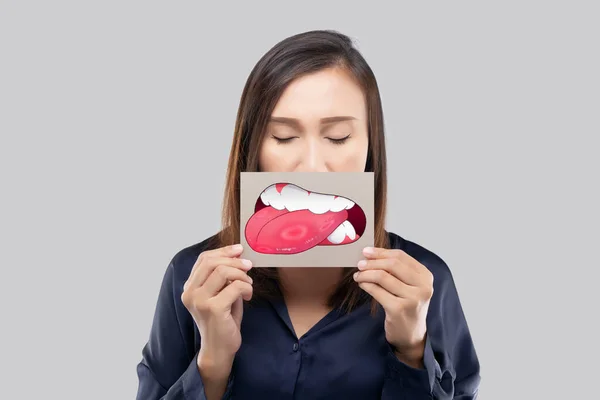Burning Mouth Syndrome (BMS) is a perplexing condition that disrupts daily life with a persistent burning or scalding sensation in the mouth, often affecting the tongue, lips, gums, and other oral areas. Those who suffer from it describe it as an unexplained, chronic pain that can seriously impact eating, speaking, and overall well-being. Despite its elusive nature, recent insights and practical strategies offer immediate relief and hope for those enduring this condition.

- What Is Burning Mouth Syndrome (BMS)? Experts Reveal the Truth
Burning Mouth Syndrome (BMS) is a perplexing and often underdiagnosed condition marked by a persistent burning or scalding sensation in the mouth, most commonly affecting the tongue, lips, roof of the mouth, or even the throat. Unlike the occasional discomfort caused by hot food or an allergic reaction, BMS presents without any visible signs of irritation or inflammation, making it both frustrating and difficult to treat.
Kathryn Jones, a graduate student at Columbia University College of Dental Medicine who has studied BMS extensively, notes, “The condition is more common in postmenopausal women and often correlates with hormonal shifts, psychological stress, or neuropathic dysfunction.” According to research, up to 15% of postmenopausal women may experience symptoms consistent with BMS, though many remain undiagnosed due to the subtle nature of the syndrome.
Grigoriy E. Gurvits, MD, a Professor of Medicine and gastroenterologist at NYU Langone, adds, “In many cases, BMS is idiopathic, meaning it occurs without a clear cause. This adds another layer of complexity to diagnosis and treatment.” However, despite its mystifying nature, relief is possible—and in some cases, instantaneous.
Instant Relief for Burning Mouth Syndrome: What Actually Works?
When the tongue feels like it’s been seared and water provides only fleeting comfort, people with BMS often become desperate for immediate relief. While the exact response may vary from person to person, several techniques have been shown to reduce symptoms within minutes.
Here are proven ways to find fast relief from BMS symptoms:
- Suck on Ice Chips or Ice Water: The cold can help soothe nerve endings and offer temporary relief from burning. This is especially helpful in the middle of an acute flare.
- Use a Saliva Substitute: Dry mouth often accompanies BMS. OTC saliva replacements such as Biotène Oralbalance or XyliMelts may hydrate oral tissues and reduce irritation.
- Apply Baking Soda Rinses: Mix 1/2 teaspoon of baking soda in a glass of water and rinse for 30 seconds. This helps neutralize acids and calm nerve endings.
- Try Topical Oral Lidocaine: Available in gel or rinse form, lidocaine numbs the nerve endings in the oral mucosa, providing fast-acting but temporary relief.
- Chew Sugar-Free Gum: This promotes saliva flow, which may reduce the burning sensation and coat sensitive areas in the mouth.
- Use Capsaicin Rinses (With Caution): While paradoxical, diluted capsaicin (the active component in chili peppers) has been shown in small studies to desensitize oral nerves when used as a mouth rinse.
Immediate relief strategies are often short-lived. That’s why addressing root causes and implementing long-term strategies is essential for lasting comfort.
Does HRT Relieve Burning Mouth Syndrome? The Hormonal Connection
One of the most discussed potential treatments for BMS in postmenopausal women is hormone replacement therapy (HRT). Since the syndrome often surfaces during or after menopause, the connection between declining estrogen levels and oral discomfort has drawn considerable attention.
Some small-scale studies and clinical observations suggest that HRT may alleviate symptoms in women with hormonally driven BMS. “There’s a plausible link between estrogen receptors in oral tissues and the onset of symptoms,” says Jones. “But response to HRT can be inconsistent.”
In fact, the American Academy of Oral Medicine notes that while some patients report significant relief with estrogen therapy, others see no improvement at all. Moreover, HRT comes with its own set of risks—including an increased risk of stroke, breast cancer, and blood clots—which must be carefully weighed against potential benefits.
Ultimately, while hormone therapy might be helpful in some cases, it is far from a guaranteed solution. It’s best approached as part of a comprehensive treatment plan rather than a standalone fix.
Other Causes Behind BMS Symptoms You Shouldn’t Ignore
Although BMS is often idiopathic, secondary cases tied to underlying health issues must be considered. Treating the root cause in these instances can eliminate symptoms altogether.
Common medical conditions and triggers associated with BMS include:
- Nutritional Deficiencies: Especially vitamin B12, folate, zinc, and iron.
- Dry Mouth (Xerostomia): Caused by medications like antihistamines, antidepressants, and chemotherapy drugs.
- Allergic Reactions: To ingredients in toothpaste, dental materials, or certain foods.
- Endocrine Disorders: Such as thyroid dysfunction or diabetes.
- Neuropathy: Damage to small nerve fibers in the mouth.
- Stress and Anxiety: Chronic stress may alter pain perception and saliva composition, aggravating BMS symptoms.
Before beginning any treatment, it’s crucial to rule out these underlying factors through comprehensive blood work, oral exams, and possibly referral to a specialist.
The Bottom Line on BMS: There Is Hope and Treatment
Although Burning Mouth Syndrome can feel isolating and painful, you are not alone—and more importantly, you are not without options. From targeted topical treatments that provide immediate relief to more long-term solutions like cognitive behavioral therapy, dietary changes, or medication, many patients have successfully found their way back to comfort.
Jones emphasizes that patient education and persistence are key: “BMS is real, and it deserves proper evaluation and tailored management. It may take time to find the right combination of treatments, but relief is possible.”
Here’s a summary of key takeaways for managing BMS:
- Track your symptoms and triggers with a journal.
- Visit your dentist and physician to rule out secondary causes.
- Test your nutrient levels, especially B12, iron, and zinc.
- Explore short-term relief strategies while planning long-term care.
- Don’t self-medicate with herbal or topical products without professional guidance.
Living with BMS can be frustrating, but consistent support, accurate diagnosis, and a multi-faceted approach to care can make all the difference. While there may not yet be a universal cure, there is always a path forward—one that leads to relief, resilience, and restored quality of life.
Also Read | Lipedema vs. Cellulite: What Every Woman Must Know










